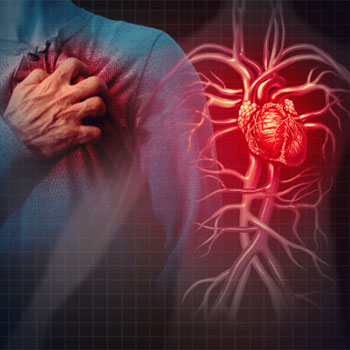cardiac diseases
Cardiac diseases, also known as cardiovascular diseases, are a group of disorders affecting the heart and blood vessels. For diabetic patients, understanding and managing cardiac diseases is crucial, as diabetes significantly increases the risk of developing heart-related complications.
What are Cardiac Diseases?
Cardiac diseases encompass a range of conditions that affect the heart's structure and function. Some of the most common types include:
Coronary Artery Disease
This occurs when the coronary arteries, which supply blood to the heart muscle, become narrowed or blocked due to the buildup of plaque. This can lead to chest pain (angina), heart attacks, and other serious complications.
Heart Failure
This condition happens when the heart cannot pump blood efficiently, leading to symptoms like shortness of breath, fatigue, and fluid retention.

Arrhythmias
These are irregular heartbeats that can be too fast, too slow, or erratic, disrupting the heart's ability to pump blood effectively.
Heart Valve Disease
This involves damage to one or more of the heart's valves, impairing blood flow through the heart.
Congenital Heart Defects
These are structural problems present at birth, affecting the normal flow of blood through the heart.
Why are Diabetic Patients at Higher Risk?
Diabetes affects the body’s ability to produce or use insulin effectively, leading to elevated blood glucose levels. Over time, high blood sugar can damage blood vessels and the nerves that control the heart. Key factors contributing to the increased risk include
- High Blood Pressure: Common in people with diabetes, high blood pressure can strain the heart and damage blood vessels.
- High Cholesterol: Diabetes often leads to abnormal levels of cholesterol, contributing to plaque buildup in arteries.
- Obesity: Excess body weight is a significant risk factor for both diabetes and cardiac diseases.
- Inflammation: Chronic inflammation associated with diabetes can damage the cardiovascular system.
Symptoms to Watch For
It’s vital for diabetic patients to be vigilant about the symptoms of cardiac diseases. Common signs include
- Chest Pain or Discomfort: Often described as pressure, squeezing, or fullness, it may radiate to the shoulders, arms, neck, or back
- Shortness of Breath: Occurring during physical activity or even at rest.
- Fatigue: Unusual tiredness, especially with exertion.
- Swelling: Particularly in the legs, ankles, and feet due to fluid retention
- Palpitations: Irregular or rapid heartbeats.
Preventive Measures and Management
Managing diabetes effectively is the first step in reducing the risk of cardiac diseases. Here are essential strategies
- Blood Sugar Control: Regular monitoring and maintaining blood glucose levels within the target range can prevent or slow the progression of heart disease
- Healthy Diet: Focus on a heart-healthy diet rich in fruits, vegetables, whole grains, lean proteins, and healthy fats. Avoid processed foods, sugary beverages, and excessive salt.
- Regular Exercise: Aim for at least 150 minutes of moderate-intensity exercise per week. Activities like walking, swimming, and cycling can improve heart health.
- Weight Management: Achieving and maintaining a healthy weight can reduce the strain on the heart and lower the risk of cardiac diseases.
- Medications: Adhere to prescribed medications for diabetes, high blood pressure, and high cholesterol. These medications help control risk factors and prevent complications.
- Regular Check-ups: Routine medical check-ups can help detect early signs of cardiac disease and other diabetes-related complications.
- Avoid Smoking: Smoking significantly increases the risk of heart disease. Quitting smoking can dramatically improve heart health.
For diabetic patients, understanding the link between diabetes and cardiac diseases is critical. By managing diabetes effectively and adopting a heart-healthy lifestyle, the risk of developing cardiac diseases can be significantly reduced. Always consult healthcare providers for personalized advice and treatment plans to ensure optimal heart health.
